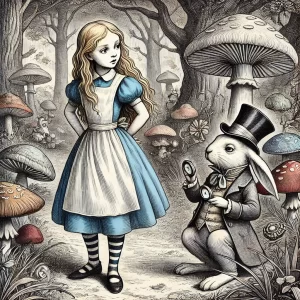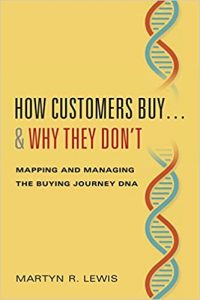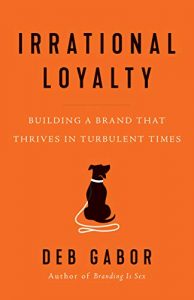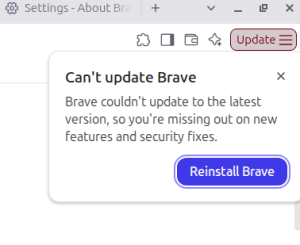Interview With Thuhang Tang and Sharon Orlopp

Thuhang Tang and Sharon Orlopp are the co-authors of Thuhang Tang’s new memoir, Standing Up After Saigon: The Triumphant Story of Hope, Determination, and Reinvention, which shares Thuhant Tang’s experience of contracting polio as a child in Vietnam and finding treatment in America. Thuhang Tang now works as an Information Technology specialist.
Heidi: Could you tell us a little about your experience with polio and how it affected your life?
Thuhang: Definitely. I had polio when I was two-and-a-half years old. The experience with polio have gone from extreme, right? But especially living with disability was definitely I haven’t—definitely entire limitation. Especially living in Vietnam country back then, back between 1975.
The society is not very good at supporting or helping disabled people in general. There was—it was difficult for me and especially they don’t have any accessibility such as sidewalks on street, even in buildings. Mostly stairs and steps.
And then also, that is like for the accessibility. And on the people, mindset, usually they are considered, disables people, a person was live other expense or useless.
So, at first, when I got polio and I went to school, I crawling on the ground with using my two arms as legs and my legs was paralyzed so it would drag along on the ground. So, by the time I started school, I reinvented how to manage around faster and easier, so I was squatting. So, you can relate it to like the duck. The way the duck is squatting.
So, because I am different, look different with other kids, so I got a lot of different kind of bullying, teasing, or fist, even like constantly, right? So, that is what—how I experienced that different situation.
And how is that affect my life? Even though I prepare, or my mom prepare for me mentally that I had to face these bullies and the difficulty in life when I went to school, so at first, I felt very insecure from those bullies. I was like quiet and withdrew myself and very like unhappy.
But however, one time I stood up for myself, from the bullying and after that incident, I realized that I have to be encouraged to stand up and also prepare for the challenge ahead of me. Along with that, I was only hope and stay positive.
Heidi: Okay. Do you remember your first impressions of America?
Thuhang: The first impression in America, is just like everything was so modern, especially my impression was the accessibility on the street. They have ramps, they have corner at the intersection, and every building I went to they had accessibility for people. And that’s what my impression.
So, there’s another question you’re asking? That’s what inspired me to learn English, right?
Heidi: Yes.
Thuhang: Okay. So, what inspired me was , actually, is to me, learning English is necessary. When I came to the States, English is the main language, right? And I—in order for me to integrate into society, school and work, and especially that means I have to be adapted with the new culture, the new environment. So, learning English is a must for me.
Also, with that combination, another inspire me was that when I look back during the time I live in Vietnam, so many Vietnamese people that they escape by boat and they sacrificed their life. They sacrificed their life, they don’t know what’s going to happen to them, and some of them, they been—die during the journey of the escape the country.
One most reason why that learn English inspire me is because those people, they sacrificed their life for three different reasons. Is freedom, right? Freedom from the communism. And learning English to have a better life, and also to get a better education.
Heidi: Okay. Could you tell us a little about your work in information technology?
Thuhang: Yes, definitely. This is the topic that I can talk about over like many hours. But I was really great at never regret that I chose to study information technology and along the career, with my career that I was very fortunate to work in, like a 500 Fortune company and also learn different things, involved in different life cycle adapt the information technology, such as like working in computer software, networks, internet website.
So, I work in different roles, as a system analyst and then design the information system and then I was a software engineer that I can develop hardware and software to make the system work.
And my current job is as a project management in information technology area. Maybe, I would like to give a little bit more about what project management is. It’s more about application knowledge, including skill and tool and to manage the project, multiple projects within the IT organization.
So, my day-to-day activity or responsibility as a project management environment is like I do planning, executing the project. Then also manage the project team, like such as forecasting and then also manage them from the beginning of the project to the end of project and then build a product to the end user that’s using it.
And with that, working with different stakeholders, execution—I mean, actually execute team leadership. So, that is like very intense sometimes but also, I mean, interesting. Every single day, I come in, I know that I learned a new thing. So, that’s very like high level up what currently I do.
Heidi: Awesome. What do you find most interesting or challenging about working with Fortune 500 companies?
Thuhang: Oh, yes. Actually, let me go first the challenging. Challenging is like, especially for the big company, like you mentioned, the Fortune 500 companies, is the team management. Because the environment and also the technology is evolving so fast, so that’s why sometimes when we change something and because of the rapidly change, so we didn’t prepare. I mean, the challenge is that we didn’t prepare to get from the top down to the employee or to the lower level, prepare for the change.
And beside with that, that we didn’t get enough time or have the employees to get training to catch up with the next technology. So, it’s always like the catching up. And then also hiring the talent and how to retain them. Those are the most challenge I can see when working for the Fortune 500 company.
The interesting part was a lot, but I learned along the way that I think the first one was very organized structure process, that they have all the process in place and we get all the tools and all that, I mean, for the people can come in and work.
And then the other interesting part was the learning the next technology. And then because of the big company or big corporation, I had a chance to move to different division to learn the different things and also grow in my career. So, those are the interesting parts.
Heidi: Could you tell us a little about your goals to form a nonprofit to help orphans and disabled children in Vietnam?
Thuhang: Yes. That’s my dream and also my need to do, that my goal is as well, to have organized a nonprofit. Before, back in 2004, 2005, that I had been organizing and fundraising to help the orphan and disabled children back in Vietnam. But the main key and the goal that I am focusing, that providing the scholarship to the disabled children in Vietnam, such are like—besides a scholarship, the organization will be providing the student like school supplies and all the things that help them to continue to learn or to pursue their career.
The main reason I’m really passionate about this is because I believe that helping children, I mean, continue their education is the very foundation part or the stepping stone for them to get a better education or better future.
Heidi: Okay. What inspired you to tell your story in the memoir Standing Up After Saigon?
Thuhang: The inspired that when I share my story with the people that I talk with or with my college, my friend, and anyone that I had a chance to have a conversation, but anyone say my story was fascinating and they said—they’re asking, “Why don’t you just write a book?”
That is the time—that is the fate that when I met Sharon and that’s what the book came now.
Another inspired me was I knew that we, as human being in life, is that we are all different, so we experience, each of us have a different experience or a different struggle, different challenge in life, but in different situation or different environment. But I believe that how we handle it and how we overcome it is up to us.
So, I hope that with this book, Standing Up After Saigon, can give the people what challenge that I’ve been through in my past and even now and those challenges maybe can interest the readers or people when they are at the very bottom or they are at the frustration or depression.
So, with this memoir, I hope that they can deal—continue to infuse or build the hope an also due to my—what they need to continue to be better themselves and move on with their life. That is the main key.
I hope that with this memoir can interest people always, thinking and doing the positive thing and put those negative things aside or say continue to move forward and they are valued of this life.
So, that’s the inspire that I would like to tell my story in this book.
Heidi: Ms. Orlopp, what inspired you to help Ms. Tran tell her story in this memoir?
Sharon Orlopp: Yes, both Thuhang and I worked at Walmart, but we didn’t know each other when we were there together at Walmart and I had left Walmart in 2015 and a year later, one of my mentees, who is named Wal Wang, suggested that if I was ever back in Arkansas, that I should meet with Thuhang, that she had a great story. That’s about all he told me.
So, in November 2016, Thuhang and I met for a cup of coffee and she shared her story and it grabbed me and it wouldn’t let go and at the end of the conversation, I told her, I said, “You need to write a story. You need to write a book.” She said, “I’ve been looking for somebody to help me the write the book.” And I said, “Pick me, pick me.”
We started writing it and similar to what Thuhang just said, her story is this power of continual personal reinvention, that regardless of the challenges or obstacles, Thuhang found a way to thrive and succeed. Her personal story talks a lot about determination and courage and hope and family love. I just think her story helps any of us who are going through challenges, about how to keep moving forward and how to reinvent ourselves based on the circumstances or situations we find ourselves in because what Thuhang has faced, I mean, repeated significant challenges, pales in comparison to anything I have faced or anything I think most of our readers have faced.
Heidi: What was it like to work together on this memoir?
Sharon: We had that first cup of coffee and the following Sunday, we started talking every single Sunday by Facetime. We put together a project plan and what was neat, I think we connected right away. We have similar energy and enthusiasm and then Thuhang and her father, Chen, invited me into their home and into their hearts, and their lives. I went to Arkansas for several weeks and spent a lot of time with them, interviewing them. They would read all the events and chapters and tell me, “No, you got this wrong, you need to change this.” But it was just a lot of trust and great communication and we both committed to working it through. We put our time and effort and energy in it together and it was a great partnership.
Heidi: That’s all the questions I have. Anything you’d like to add?
Sharon: I’ll just say that I think everybody has a unique, personal story and it’s important that those stories get told because I think stories are human currency. They connect us to each other and they help us open up our hearts and our minds. I love the power of storytelling and I think anyone and everyone should share their story with others. I think it helps us be better humans toward each other.
Thuhang: Yes, definitely I concur with what Sharon mentioned because I know, like I mentioned, we are space and challenge our day-to-day activities, so it’s good that, and share. I think when I realized that when I share my story with Sharon and then during the process that we wrote the book, and it’s helped me. Helped me to not only—sometimes it was difficult to recall the difficult time and some of the memories that brought back to me, but it helped me to face it and take courage or some of it comfort, said, “Oh, this is the one that I need to be moved forward.” So, it’s a good therapy for me as well. I think I would encourage everyone to share their story. I know this, it’s sad or it will be a happy story, but a story is their story and we can—I know that people can find out how amazing it is to relate to each other and to relate to other people as well.
Heidi: Awesome. Thank you for doing this interview.
Thuhang: Well, thank you so much.
Sharon: Yes, thanks.









